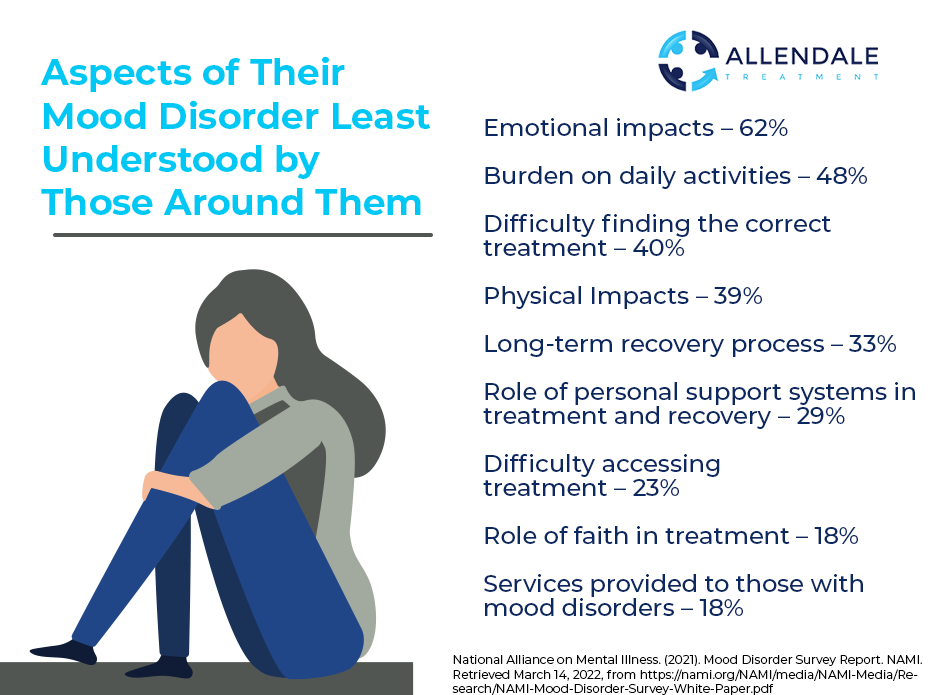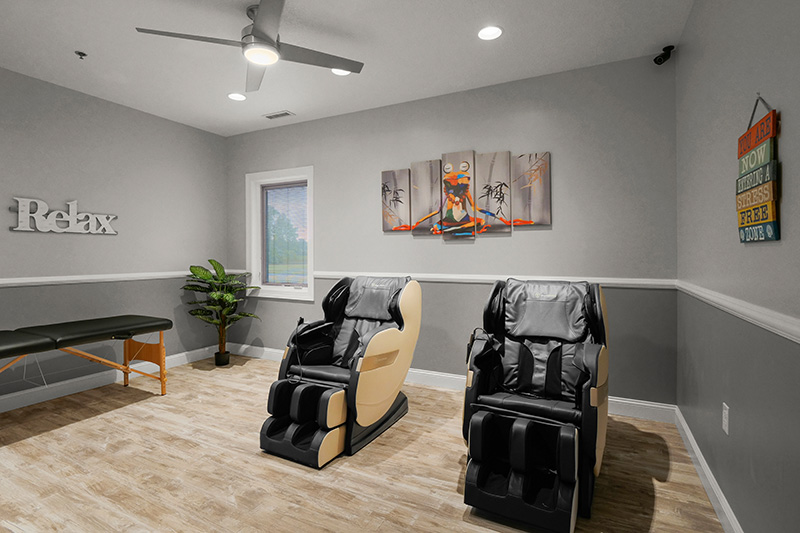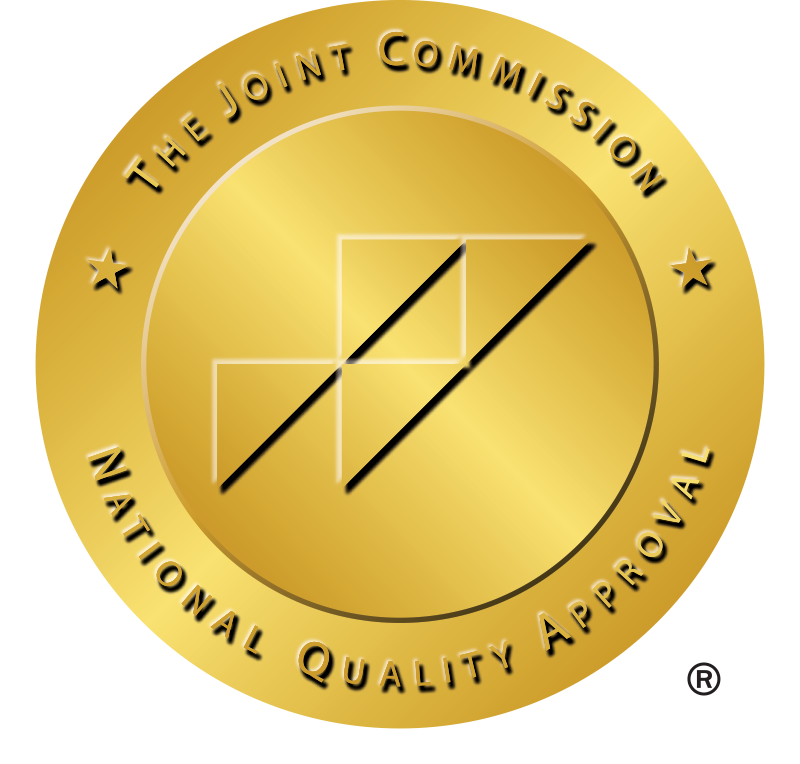Get Treatment for Your Depression, Bipolar Disorder or Other Mood Disorder in Fort Wayne, IN
Get Treatment for Your Depression, Bipolar Disorder or Other Mood Disorder in Fort Wayne, IN
At Allendale Treatment, we treat mood disorders from a trauma perspective.
A mood disorder is an umbrella term for mental health professionals that classifies all types of depression and bipolar disorders. People of all ages can be diagnosed with a mood disorder; however, children and teens may not always have the same symptoms that adults have.
Whether you’re suffering depression, dysthymia, bipolar disorder, substance abuse mood disorder, or any number of co-occurring disorders, it is our belief that the root cause of the presenting symptoms must be addressed in order to truly heal.
Too often, we try to put a BandAid on a problem that’s deeply rooted deeper in trauma. At Allendale, we aim to help our clients heal the wounds “driving” their behaviors and strengthen their core sense of self. Only then are they able to manage and alleviate the symptoms and behaviors that have caused such immense suffering.
833-338-6946
Call 24/7/365 to Speak With an Admissions Counselor
Where to Find Us:
5419 Co Rd 427
Auburn, IN 46706
310 E Dupont Rd Suite #2
Fort Wayne, IN 46825
Seeking Professional Treatment for Depression, Bipolar Disorder and Other Mood Disorders
Mood disorders are not things that are simply “in someone’s head” or that can be “shaken off” so easily. They are physical illnesses that require much more attention to detail.
Though there are many mood disorders, there is no single proven cause for any which one. The only thing that has been pinpointed is that the brain can have chemical imbalances. If you are experiencing mood disorder symptoms, it is important to know that no one made you like this. It is not your fault or your family’s fault, so don’t feel ashamed of the way you are feeling!
With that said, you do have to take it upon yourself to seek professional treatment as battling mood disorders on your own is an almost impossible burden to overcome. Our professional staff here at Allendale Treatment is highly trained with decades of experience treating mood disorders in Fort Wayne, IN.

People suffering from a mood disorder that is affecting their relationships or social interactions are largely misunderstood and left to navigate social environments with little to no guidance. Almost three quarters of the people experiencing a mood disorder feel that it is hard to open up about their diagnosis, and many feel that they are treated different simply because they have the disorder they have (NAMI pg. 10, 2021).
There are still positive interactions amongst people with mood disorders. Three quarters say that when they do open up about their disorder, the people they tell are supportive and interested. Similarly, talking about mood disorders lead people to a much more open avenue to share their experiences, talk things out, and learn about what others are going through. Promoting awareness can be one of the best ways to offer an environment that is far more welcoming and inclusive (NAMI pg.10, 2021).
Or Call (833) 338-6946

Common Mood Disorders Which We Treat
Major Depression (Clinical Depression)
– Common Causes: Loss of someone (death, divorce, or separation), social isolation, a major life change (graduation, moving, job change), conflict in any form of relationship, any form of abuse
– Common Symptoms: nearly constant fatigue or lack of energy, feelings of worthlessness or guilt, indecisiveness or impaired concentration, insomnia or hypersomnia (excessive sleeping), reoccurring thoughts of death or suicide, and significant weight loss or gain (when 5% or more of body weight changes in a month)
– Management/Treatment: therapy (behavioral therapy, cognitive behavioral therapy, psychotherapy), medications (SSRIs, antidepressants, anxiolytic, antipsychotic)
Other Important Facts About Major Depression:
– Major depression is one of the most common psychiatric disorders
– Between 15 and 20 out of every 100 people (15-20%) experience some episode of major depression at some point in their life
– Genes provide only some of the answers to why someone is as depressed as they are
– Depression can affect the body, resulting in headaches, stomach problems, or even general aches and pains that come from no clear physical cause
– Depression can leave someone at more risk for things like diabetes, heart disease, arthritis, or irritable bowel syndrome
– Exercising 30 minutes or longer each day can help improve symptoms of depression
– Depression often coexists with other mood disorders or mental disorders like anxiety
– Depression affects people all around the world, with over 300 million cases worldwide
Dysthymia (Persistent depressive disorder)
– Common Causes: biological differences (physical changes to the brain, but the significance remains uncertain), changes in brain chemistry (neurotransmitters and brain chemicals having changes in function that effects interaction with neurocircuits), inherited traits (depression-related genes, though researchers are still trying to find specific genes that lead to causes of depression), life events (trauma, financial problems, or high levels of stress can all trigger this disorder)
– Common Symptoms: loss of interest in any kind of activity, sadness, hopelessness, tiredness/lack of energy, low self-esteem or feeling incapable, having trouble making decisions or concentrating, irritability, avoidance of social settings, feeling guilty/worried about the past, poor appetite, sleep problems (insomnia, hypersomnia)
– Management/Treatment: use methods of stress management (exercising, deep breathing, meditation, etc.), reach out to family when things become overbearing, Psychotherapy, medications (SSRIs and antidepressants)
Other Important Facts About Dysthymia:
– Dysthymia has over 3 million cases per year just in America
– Dysthymia is considered a milder form of depression, however it is long lasting
– Dysthymia affects women twice as much as men
– This condition usually lasts longer than five years, so long-term treatment may be needed
– A combination of both medication and therapy is said to be one of the most effective ways to receive treatment
Bipolar Disorder
– Common Causes: there is no exact cause for bipolar disorder, however researchers know that it can be from someone’s genetics, environment, or a change in brain chemistry.
– Common Symptoms: intense periods of emotion (also known as “mood episodes,” where there can be long periods of mania or depression), change in sleep patterns (insomnia or hypersomnia), change in activity levels, uncharacteristic behavior
– Management/Treatment: Medications (mood stabilizers, second generation “atypical” antipsychotics), Psychotherapy (talk therapy)
Other Important Facts About Bipolar Disorder:
– Bipolar disorder can be hard to diagnose correctly
– Bipolar disorder usually has secondary conditions (anxiety disorders, impulse-control disorders, drug and alcohol problems)
– Symptoms usually start to show in someone’s teens or early 20’s
– Around 3% of US adults experienced bipolar disorder in the past year
– There are seven types of bipolar disorder: bipolar I (at least one manic episode), bipolar II (at least one hypomanic episode), cyclothymic disorder (rapid cycles of hypomanic and depressive symptoms), substance/medication-induced bipolar and related disorder, bipolar and related due to another medical condition, other specified bipolar and related disorder, unspecified and related disorder
Mood Disorder from Another Medical Condition
– Common Causes: the beginning of such a diagnosis is not well understood, but the diagnosis changes based on the specific medical condition. Diseases like multiple sclerosis or Huntington’s are some of the well-known diseases that can have high rates of mood disorders.
– Common Symptoms: a prominent or persistent period of depressed mood, history or laboratory finding that a previous medical condition has a direct correlation, the disturbance does not occur exclusively during a delirium (mental disturbance resulting in confused thinking or reduced awareness), distress that causes impairment in any form of daily functioning (social, occupational, or other important areas)
– Management/Treatment: antidepressants, selective serotonin reuptake inhibitors (SSRIs), monoamine oxidase inhibitors
Other Important Facts About Mood Disorders from Another Medical Condition:
– Some of the top medical conditions that lead to mood disorders are diabetes, heart disease, arthritis, kidney disease, HIV and AIDS, lupus, and multiple sclerosis
– Hypothyroidism can lead to depressed feelings
– Many medications like hydrocortisone, triamcinolone, prednisone, Flonase, Nasacort, Nasonex, Flovent, and Azmacort can result in mood swings that can trigger mood disorders
– Medical conditions that involve severe chronic pain can lead to depressed feelings
Substance-induced mood disorder
– Common Causes: use of substances of abuse or medication
– Common Symptoms: feeling of hopelessness, worthlessness and guilt, losing interest in regular things, lack of energy, difficulties sleeping, loss of sex drive, headaches or joint pain, difficulty concentrating, suicidal thoughts
– Management/Treatment: cognitive-behavioral therapy (CBT), motivational interviewing, motivational enhancement therapy (MET), drug counseling combined with psychotherapy
Other Important Facts About Substance-Induced Mood Disorders:
– Substance/medication-induced mental disorders can refer to depressive, anxiety, psychotic, or manic symptoms that can occur from the use of substances of abuse or medications
– Symptoms may begin to show during active substance use, intoxication or withdrawal
– Depression and bipolar disorder frequently co-occur with substance-induced mood disorders.
– 22 million people are suffering from active substance use disorders
– Alcohol is one of the most common primers for substance-induced mood disorders

Dual-Diagnosis Treatment
Over 17 million adults were diagnosed with a mental health disorder in the past year. 4 Million of those with a mental health disorder had a co-occurring disorder of alcoholism or substance abuse.
Sadly, over 50% of those in need of dual diagnosis treatment fail to receive it.
Here at Allendale Treatment, we know how important it is for people to get care for a substance abuse disorder and a mental illness at the same time. If you or someone you love is struggling with addiction, our medical health professionals will help you safely treat and beat your addiction, and we can address many co-occurring mental illnesses as well.











